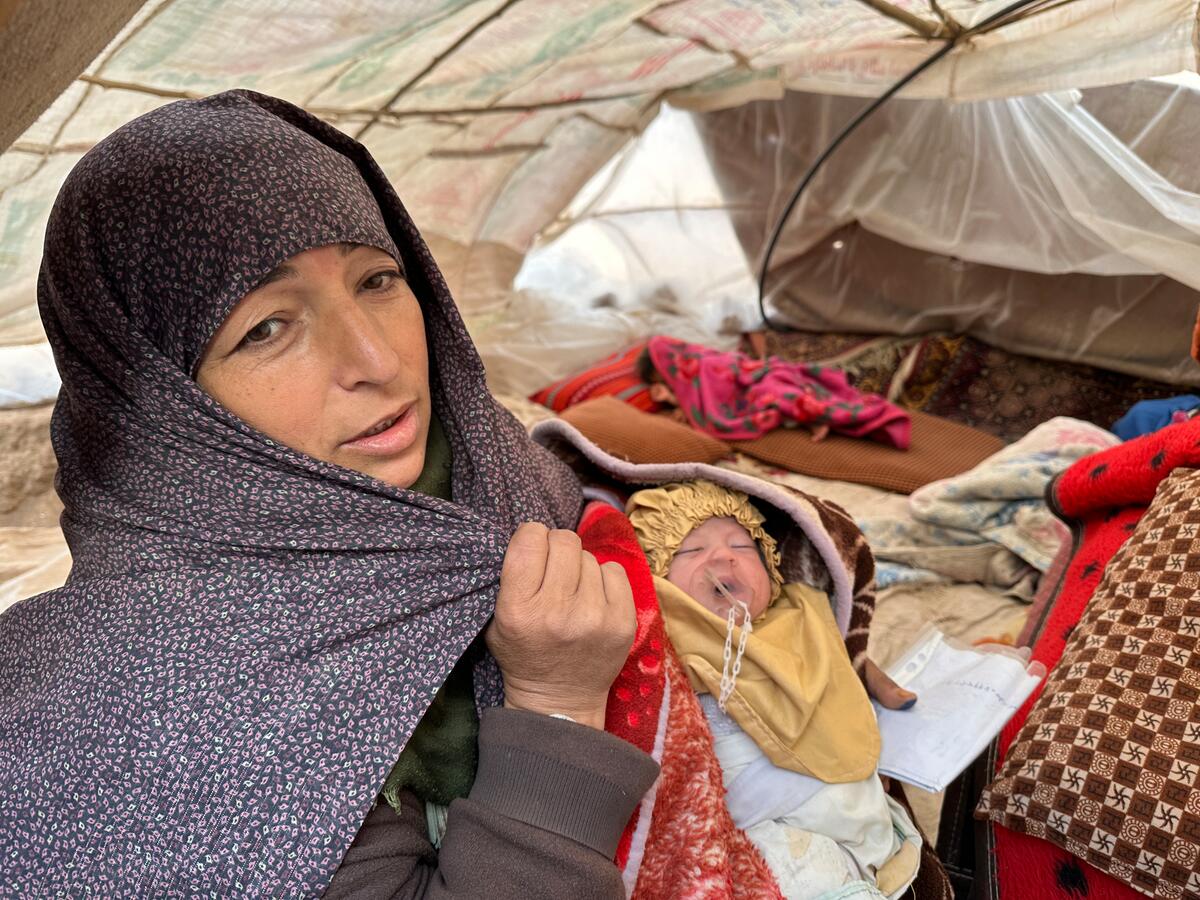Afghanistan, UK and UNHCR sign voluntary repatriation agreement
Afghanistan, UK and UNHCR sign voluntary repatriation agreement
KABUL - The governments of Afghanistan and the United Kingdom and UNHCR on Saturday signed an important agreement in Kabul, setting out a detailed framework for the voluntary repatriation of Afghans residing in the UK and their reintegration back in Afghanistan.
The tripartite agreement was signed between Afghanistan's Minister for Refugees and Repatriation, Enayatullah Nazari, UK Foreign and Commonwealth Office Minister, the Parliamentary Under-Secretary Mike O'Brian, and UNHCR's chief of Afghanistan operation, Filippo Grandi. Minister of Rural Rehabilitation and Development, Hanif Atmar, was also present.
The UN refugee agency believes that the Memorandum of Understanding between the two governments and UNHCR contains all the necessary safeguards to ensure that Afghans who still need international refugee protection continue to receive it and that returns under the agreement would be sustainable.
"With this agreement, I am confident that the actual organized repatriation takes into account the protection and humanitarian needs of Afghans as well as the absorption constraints in Afghanistan, especially during winter," Grandi said.
Raymond Hall, director of the UN refugee agency's Europe Bureau, said in Geneva that UNHCR hoped that other countries who were interested in offering assisted voluntary repatriation for Afghans would use the agreement as a model, along with a similar agreement signed by Mr Nazari, the French Interior Minister, Nicolas Sarkozy, and UNHCR in Paris two weeks ago.
Under the agreement, UNHCR will provide information and counselling to Afghans in the UK - to ensure that any decision to repatriate is "taken in full knowledge of the facts." UNHCR will also monitor the voluntariness of the return prior to departure, as well as other aspects of the agreement - a role that both states have pledged to fully respect. Similarly, once returnees are back in Afghanistan, the agency has guaranteed access to them from the moment they land at the airport.
The agreement makes it possible for all Afghans living in the UK, irrespective of their legal status, to benefit from a voluntary repatriation package, although precise terms vary according to their status and how recently they arrived in the UK.
Although the agreement gives a strong priority to voluntary repatriation, it recognizes that Afghans without protection needs or other humanitarian concerns can legitimately be returned "in a phased, orderly and humane" process that will be "accomplished in manageable numbers and will take account of the availability of accommodation." For the most part, such returns will not be considered "before the end of the winter months, i.e. not before 1 April 2003." The agreement states that such returns will be in "in compliance with the 1951 Convention relating to the Status of Refugees and its 1967 Protocol."
In addition to the repatriation package, the UK government has also committed itself to pay for the transport of Afghans and their personal belongings back to their homeland; to provide medical examinations and any necessary vaccines before departure; and to consider a range of reconstruction and rehabilitation projects, including employment-generating programmes, in Afghanistan itself.
The Transitional Islamic Administration of Afghanistan commits itself to re-admit its nationals. It also agrees to recognize any change in circumstances in their legal status, including births, marriages, deaths, adoptions and divorce, since they left their country. Non-Afghan spouses will be permitted to enter and stay in the country. All returnees are guaranteed the freedom to settle in their former place of residence or "any other place of their choice in Afghanistan."
All three signatories pledged themselves to take special measures to safeguard family unity and also for vulnerable groups, particularly unaccompanied minors, for whom a number of specific safeguards are outlined.






